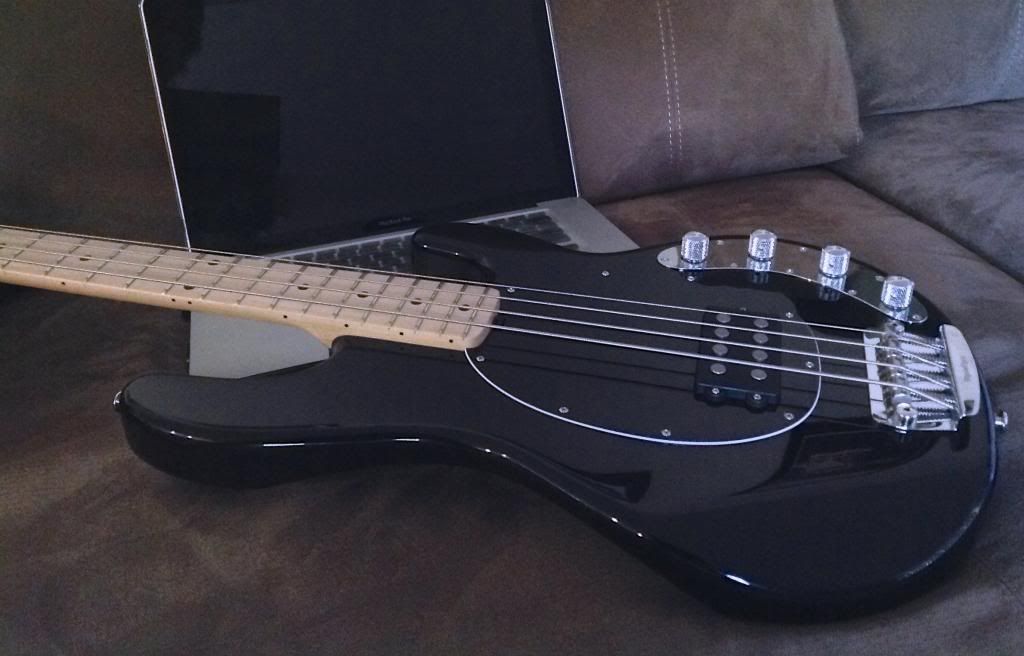There is a lot of current scientific research to support this fact, but rather than posting some dry research papers, here is my review of Guitar Zero.
Author Gary Marcus is a developmental psychologist, professor at NYU, and regarded by his peers as “one of the deepest thinkers in cognitive science.” In Guitar Zero he debunks the popular belief that talent for music is innate, or that its something an adult is unable to learn. The idea that an adult can't learn something complicated like a musical instrument was the basic idea behind the "critical periods" of learning. Since this theory is based on weak evidence, scientists have been reconsidering these theories. The “critical periods” suggests that if a person fails to learn a language, music, etc. in their formative years that they will never be able to learn as adults. I can’t help but wonder how many people accepted that as truth, and decided to forgo making the attempt.
Early in the book, the author examines the health benefits of music;"...the journey... exercising our brains helps maintain them by preserving plasticity, wards off degeneration, and literally keeps the blood flowing" pg3. This idea isn't new; the Sudoku craze for instance, or the brainteasers once found in every newspaper. Perhaps the latest addition in brain exercising is a website called Lumosity. Its home page currently displays in large letters, "Harness your brain's neuroplasticity and train your way to a brighter life. Lumosity turns neuroscience breakthroughs into fun, effective games. Stimulate your brain today." Of course, they aren't giving it away- there are monthly fees to improve the plasticity of your brain.
 |
| Today's practice tools |
He asserts that learning to play the guitar, not only benefits the brain, but also benefits our emotional wellbeing. It is an activity that provides a lasting happiness, as opposed to a fleeting pleasure. Instead of spending not only my money, more importantly-- precious time-- playing games (Lumosity), why not focus that energy learning something that will enrich your life; learn to play a musical instrument. This is the path our author followed.
One of the more interesting topics in the book that stood out to me was that of practice. Again, the wisdom from Zen Guitar came to mind when reading about the worlds leading expert on expertise, cognitive Psychologist Anders Ericsson, and his theory about practice. Ericsson says there are two vital keys to becoming an expert:
1) A ton of practice
2) Deliberate practice
By “a ton of practice” Dr. Ericsson is talking about the often-repeated phrase "10 years, or 10,000 hours." He is actually the one who coined the phrase. Relating this to Zen Guitar, author Philip Toshio Sudo writes, “Beginning students often ask, ‘how long will it take me to learn the Way of Zen Guitar?’ My answer is, as long as you live—that short. Your playing may progress enough to impress your friends in a years time, perform onstage in two years, or turn professional in three. But if those are the ends you seek, your concern is not Zen Guitar… is learned day by day, minute by minute, second by second, now to eternity. There is no faster way.”We see this is true of Perry Beekman, and all of us who have a guitar as part of our lives.
But practice alone, is not enough; it needs to be meaningful. That’s where the second part comes in; deliberate practice. This is a process of constant self-evaluation, focusing on your weakness—not your strength. There is a significant difference between playing what you already know, and stretching yourself to reaching new levels. The world can be changed by three chords, but why stop there? Without being overly scientific, Marcus explains the theory of the “zone of proximal development” pg12. The theory is that learning is most effective when it’s not to hard, and not to easy; the goal must be set just beyond reach. To illustrate this idea, Marcus uses the goal of 80% success. If the rate of success is greater people get bored. If less than 80% people get frustrated and give up— believing the task is just too difficult for them to learn.
 |
| Trees of inspiration; Life moves fast-- follow your dreams |
The idea of deliberate practice is again consistent with Zen Guitar; Sudo writes, “…concerns the way you physically take it in your hands. Don’t pick up your guitar aimlessly. Act with a sense of purpose. Be of the mind that you’re going to dosomething… maybe you just want to noodle on it while watching TV. Then pick up your guitar with the mind of noodling while watching TV. Remember, the guitar is an instrument—a thing by means of which something is done. Keep this in mind every time you reach for it” pg29.
In a nutshell, the book is about his journey as a 39-year old adult, without the slightest hint of rhythm, learning to play the guitar. Along the way he explains the psychology behind the process, and delves into the brain science of how anybody of any age can learn to play a musical instrument. If you are an adult with the desire to learn to play, then do it! Find a guitar of good quality-- one that speaks to you, and begin your journey. Gary Marcus’s book is proof that it can be done by anyone, of any age.
"It will test your head... and your mind... and your brain, too"
~Dewey Finn; School of Rock


No comments:
Post a Comment